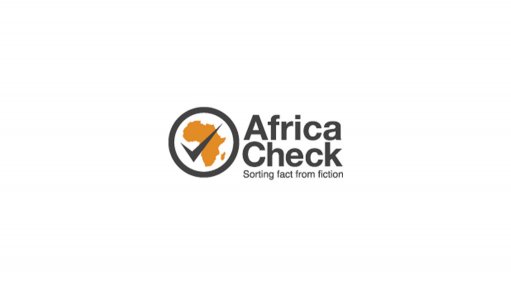
A vocal Nigerian Islamic ruler told elites from the country’s northern region earlier this year to stop building mosques and rather channel resources to educating girls and discourage early marriages.
Punch newspaper reported the emir of Kano, Muhammadu Sanusi II, told delegates at a conference: “I’m just tired of people coming to me to say I want to build a new mosque. You know, we keep building mosques and our daughters are illiterates.”
Sanusi reportedly added that high levels of illiteracy, early marriage, divorce and the domestic violence in this region of Nigeria are “not a mere coincidence”.
Africa Check pored over two claims the emir made about the share of girls married before their 18th birthday and the risk pregnancy holds at a very young age.
Claim: “Over 50% of girls [in] the age bracket of 18 and 20 were given out in marriage in this part of the country.”
Verdict: correct
Sanusi told Africa Check by email that he meant the girls in this age group “were married off when they were adolescents below 18”. He added that he was specifically referring to the north-eastern and north-western part of northern Nigerian.
The north-eastern geopolitical zone includes the states of Borno, Yobe, Taraba, Adamawa, Bauchi and Gombe. The north-west consists of Kano, Kaduna, Sokoto, Zamfara, Kebbi, Katsina, and Jigawa states.
The emir forwarded Africa Check the document on which he said he had based this claim, called “Education for the girl child in Northern Nigeria”. It’s not clear who compiled it.
The document stated that more than half of the women in the north-east and north-west were married off before the age of 16, referencing the country’s demographic household survey of 2008.
However, a more recent demographic household survey is available. Nigeria’s 2013 Demographic Household Survey confirmed that the average age at first marriage among women in north-east and the north-west were well below 18.
Unless patterns have changed considerably in the past 3 years, we rate the emir’s claim – that more than half of the girls aged 18 and 19 in Nigeria’s north-east and north-west were married before they turned 18 – as correct.
Claim: “Girls who get pregnant below the age of 15 are 5 times as likely to die as girls who get pregnant at the age of 20.”
Verdict: unproven
The emir provided Africa Check with a briefing note on the health risks associated with teenage pregnancies.
It cited a 2012 United Nations Population Fund factsheet, which in turn referenced a trends in maternal mortality report compiled by the World Health Organisation (WHO) and other international bodies.
However, the WHO report does not mention a five-fold increase in risk.
Africa Check asked the UN Population Fund for proof of the statistic. The organisation’s communication specialist for youth and population, Eddie Wright, relayed comment from members of their technical division.
“Our technical experts wish to stress that most sources of maternal mortality rates have substantial biases or uncertainties, as in general, it is hard to measure,” Wright wrote. “But [the rate for women] under age 15 is particularly difficult – first because births below 15 are less common and the locations where pregnancies at this age are more likely to occur are also locations where all records of such events are less reliable.”
Given that “sound data are hard to secure” the organisation rely on two studies in particular, Wright added.
The first is a study based on data collected in the late 1960s in a rural Bangladesh county, which showed a death rate for mothers aged 10 to 14 that was 4.7 higher than for those aged 20 to 24.
The second was a hospital-based study carried out in several Latin American countries between 1985 and 2003. The results indicated a 4 time higher risk for teen mothers younger than 15 compared to those in the 20-24 age group.
A University of Southampton lecturer with interests in maternal health in low and middle-income countries, Dr Sarah Neal, co-authored a study in The Lancet reviewing maternal mortality rates in 144 countries.
“It used to be believed that all adolescents were at very increased risk of maternal mortality,” she told Africa Check. However, this study and another she co-authored suggested “the risks are not as great or universal as previously believed”.
Neal is currently systematically reviewing the studies to estimate how the risk differs for younger teenagers. (Note: We will update the report once her findings are released.)
“Data from large-scale studies in Africa are limited, but I think research certainly consistently suggests the risk for young adolescents are marked higher than for older adolescents or women in their 20s,” she said.
“I would be reluctant to put a figure on how much more of a risk it is though based on the data available and the fact it may well vary regionally.”
We therefore rate this claim unproven until better data are available.
Researched by David Ajikobi, Africa Check, a non-partisan organisation which promotes accuracy in public debate and the media. Twitter @AfricaCheck and www.africacheck.org